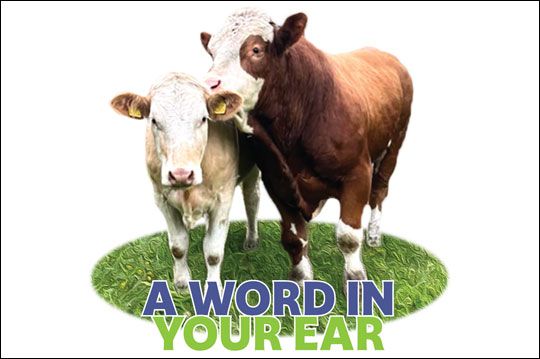
Matt O'Keeffe
Editor
End of the world is (not) nigh


We enter a new year with plenty of doomsday predictions. The perennial climate-change-catastrophe industry continues to predict imminent disaster with everything from a collapse of the Gulf Stream to widespread desertification across southern Europe and further afield. Yet, we see little evidence from COP29 of a truly global ambition to counteract and reverse the causes of this imminent mayhem. Dress up the outcome of the Baku summit any way you like, and the result is the same. Countries and economies will not damage their self-interest if at all possible. There is an underlying, if largely unspoken, doctrine among the most zealous of the environmental critics that economic growth is manifestly bad for the planet. That fine, high-ground morality does not impress most of the planet’s inhabitants who rely on continuing economic development for their sustenance.
The prophecy
If the current over-reliance on finite fossil-fuelled economic growth is not reduced, then prophecies of global environmental and climate-related collapse become self-fulfilling. The clue is in the word ‘finite’. By definition, relying on a finite resource, for however extended a period into the future can only have one outcome. That fact, if nothing more, should be enough to motivate planet Earth’s inhabitants to wean ourselves off fossil-based resources and make our economies more sustainable by adopting technologies that can reduce and eventually replace fossil dependency. That assumes that such a strategy is taken in quick step by every country and every individual. It is a challenge which should not be underestimated. Politics, indigenous oil and gas resources in individual countries, and the relative competitiveness of one energy source over another, makes these seismic changes in habitual practice enormously complex and difficult to achieve. Otherwise, there will be winners and losers, and no country wants to, or should have to acquiesce to being a loser. Even the floating oilwell countries of the Middle East recognise the need to diversify from a single wealth source. We may look askance at the buying of sporting tournaments, as some critics accuse these countries of, but these petro-states have recognised the benefits of such affiliation, allied to tourism and aviation development and some lip service, to improving their human rights records.
Protection
In Ireland, those of us old enough to remember, know only too well the economic stagnation that dogged our country until recent decades. We do not want to return to that dark era after experiencing the benefits of economic success, and are willing to work hard to ensure that we keep it. Ireland is now among the wealthiest countries in Europe and a net contributor to the EU’s finances. Our competitiveness statistics, under many headings, are amongst the highest in the OECD. Actions taken to arrest climate change must be in tandem with protecting that competitiveness and our living standards. Without a strong economy we will not have the financial resources to successfully transition towards a more sustainable model of living.
Farmers understand that more than most. Changing food production models must deliver tangible economic as well as environmental benefits. Otherwise, the model is not viable. For the most part, changes to livestock genetics, sward composition and manure storage management can deliver greater benefits than the costs incurred, while contributing positively to environmental improvement. LESS is more in terms of managing our resources economically. This may become the catchcry for the future of agriculture, not just in Ireland, but across the planet as we pivot towards producing more food using fewer resources. Less available land and lower inputs must still feed an expanding global population.





